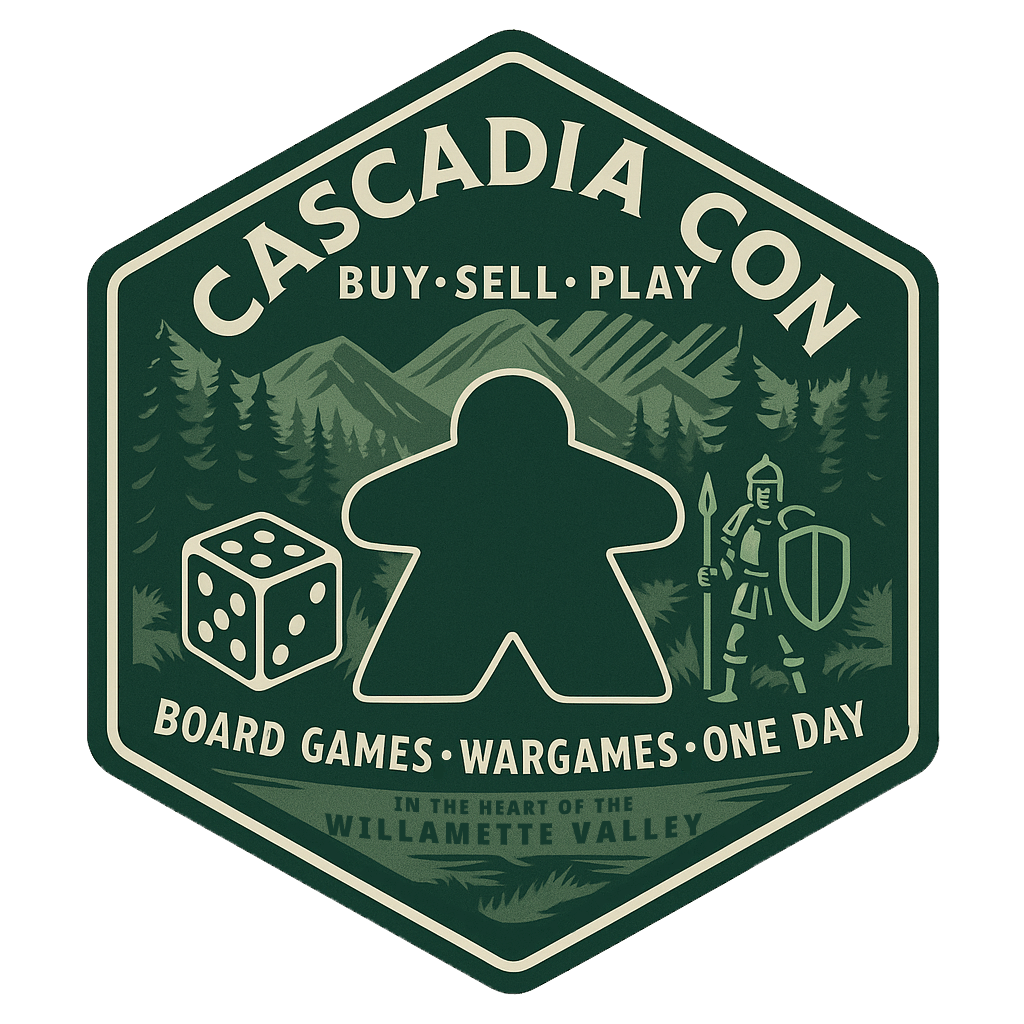
- Outdoor Tabletop Swap Meet (9:00 AM – 4:00 PM)
- Open to Everyone to Browse, Buy or Explore
- Family-Friendly Environment
- Food Truck (9:00 AM – 3:00 PM)
- Fenced Play Ground
- Ample Free On-Site Parking
- Indoor Gaming Area (9:00 AM – 9:00 PM)
- Cash-Only Auction at 3:00 PM
Saturday, September 6th, 2025
Our Saviour’s Lutheran Church
3111 S Main Rd., Lebanon, OR 97355
Visit our Web Site for more information!
Discord: https://discord.com/invite/bMGgu65fZx
Forum Navigation
Forum
Cascadia Con - Oregon - September 6th, 2025Last post
GeneralGeneral forum for talking about the Cascadia Con1 Topic · 1 PostLast post: Woo hoo! · 6 months ago · NotThatSalem
Games for Sale/TradeList games you'd like to sell or trade13 Topics · 30 PostsLast post: themilkcrate's Games for Sale · 5 months ago · Dustin Cosby
Games WantedList games you are looking for5 Topics · 7 PostsLast post: Wishlist: Planet Unknown, RA, Wond … · 5 months ago · Benzilla11
Statistics
522
Topics
5,054
Posts
362,409
Views
1,500
Users
131
Online
Newest Member: Michaelunlam · Currently Online: 131 Guests
Login required